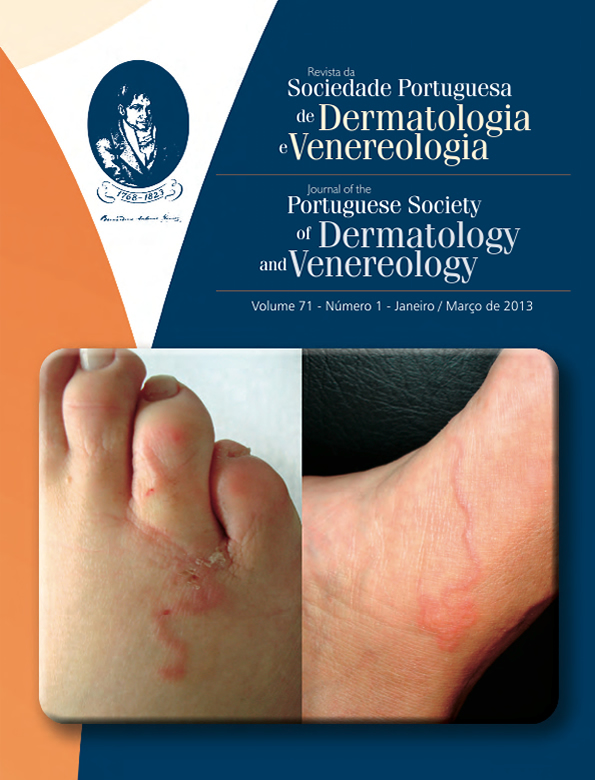MERKEL CELL CARCINOMA – CLINICAL PRACTICE GUIDELINES
Abstract
Introduction: Merkel cell carcinoma (MCC) is a rare cutaneous malignancy which incidence has tripled in the last 20 years, because of new pathologic techniques. Its mortality rates exceed those of melanoma, with signi- ficant associated morbidity and loco-regional metastasis.
Material and methods: The authors reviewed the literature in order to provide clinical practice guidelines for the diagnosis and treatment of MCC.
Results: Recently the American Joint Committee on Cancer has developed a staging system (TNM), which divides the MCC into 4 stages, depending on the degree of aggressiveness of the tumor. Surgery is the treatment of choice in the MCC approach, with surgical margins ranging between 1-2cm depending on the characteristics of the primary tumor. Currently consensus is the benefit of sentinel node biopsy, and the status of the sentinel node the most important prognostic factor. Adjuvant radiotherapy to the tumor bed and lymph node basis is of particular importance when associated with radical lympha- denectomy. Despite being sensitive to chemotherapy, stage IV MCC has a poor prognosis, with questionable benefit of chemotherapy.
Conclusions: It is important to keep a low threshold of suspicion for the CCM, in order to optimize the treatment of this aggressive tumor.
KEYWORDS – Carcinoma, Merkel cell; Sentinel lymph node biopsy; Neoplasm staging; Practice guidelines.
Downloads
All articles in this journal are Open Access under the Creative Commons Attribution-NonCommercial 4.0 International License (CC BY-NC 4.0).








